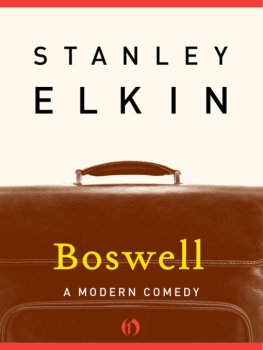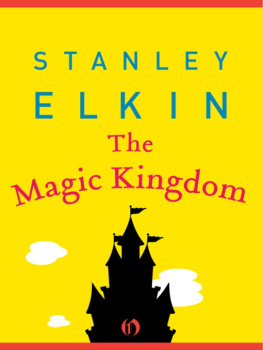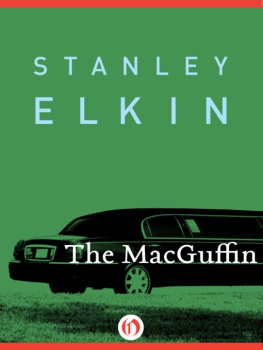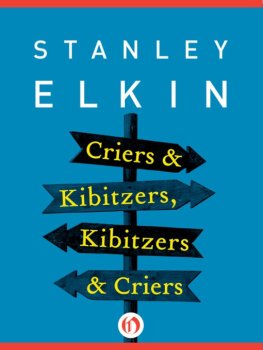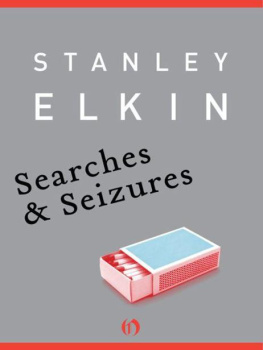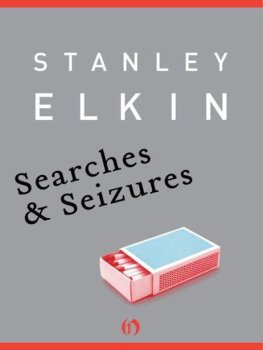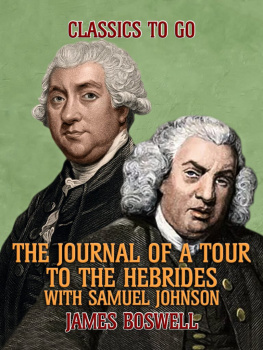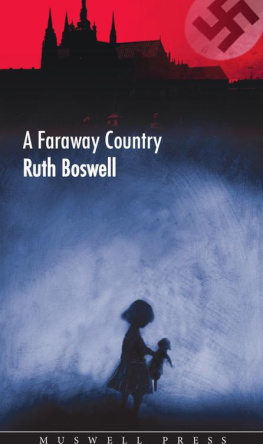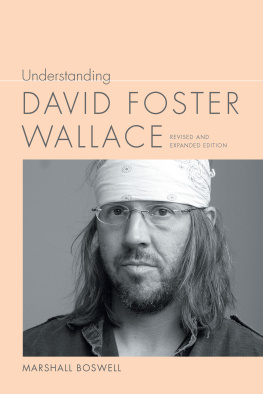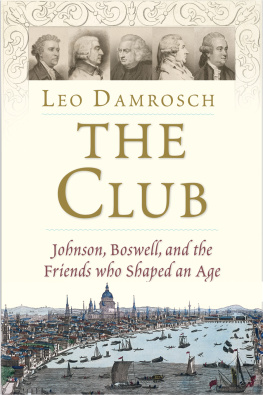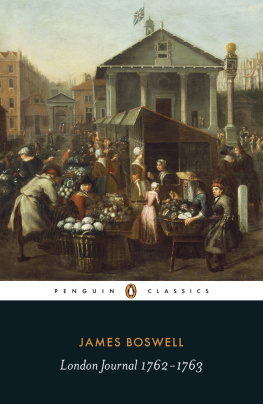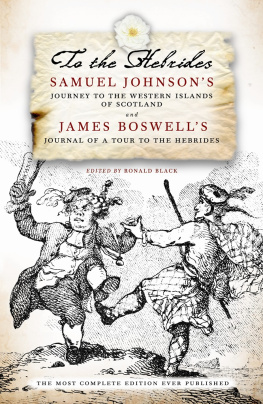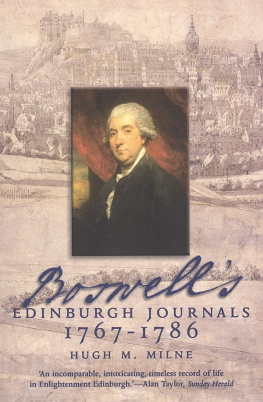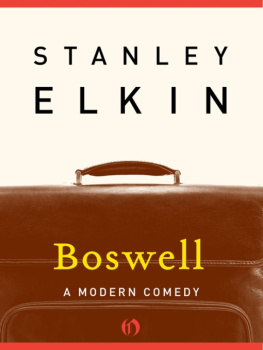For Joan, for Philip, for Zelda, and Diane
And for my father
Everybody dies, everybody. Sure. And theres neither heaven nor hell. Parker says hell is six inches below the ground and four above the head. So we walk between, never quite managing to touch either, but reassured anyway because heaven is by two inches the closer. That Parker! What difference does it make? Everybody dies and thats that. But no one really believes it. They read the papers. They see the newsreels. They drive past the graveyards on the outskirts of town. Do you think that makes any difference? It does not! No one believes in death.
Except me. Boswell. I believe in it. I believe in everything. My metaphysics is people, the living and the dead. Ladloc, the historian, says that history is the record of all the births and deaths for which there is a record. History is dates. John Burgoyne was born in 1722 and died in 1792. Louis XVI: 17541793. (Do you suppose Louis knew of Burgoynes death? Do you suppose he said, Ah, hes gone now, the old campaigner? Do you suppose he suspected hed be dead in a year himself?) Shakespeare: 1564(?)1616. Caesar: 102 (or 100)44 B.C. History. But do you notice how as one goes back the birthdays become less certain while the year of death is always absolute, fixed? Do you think thats an accident? Listen, death is realer than life. I saw a sign on U.S. 40 in Kentucky. It said REMEMBER YOU MUST DIE. I remember. But I never needed the sign. I had my own father. My father was a healthy man. Content, vigorous, powerful, well. But when he died, he died of everything. The cancer, the blindness, the swollen heart, the failed markets. But even that, the death of ones father in a hospital room, the kiss goodbye inside the oxygen tent, isnt enough for some people. Even if they stretch a point and come to believe in the death of others, they refuse to believe in their own.
I remember reading in the St. Louis Globe-Democrat an interview with the murderer, Braddock, when I was a kid. Braddock, waiting in the deathhouse, told Edward Renfrue, the reporter, When they pull that switch, theyll be pulling it on the whole world. Nobody will outlive me. Nobody. The warden. The president. You. My girlfriends. Nobody. Everybody dies when I die. He could believe in a fantastic short circuit that would end the world, but not in his own mortality. Do you suppose only a murderer thinks that way? Go on, it wasnt until they pulled the switch that Braddock understood what it was like to be a murderer. Then he murdered everybody, all of us, the born and the unborn. And dont you think he didnt close his eyes two seconds before he had to just to make sure? Just so as not to be proved wrong? Listen, even my father, my own father, when I kneeled beside his bed in that white white stinking room, looked at me and there was blood in his eyes. Why, hes angry, I thought. Hes mad at me.
Im different. I remember I must die. It explains everything. People who do not know me well people who dont keep files on me, as I do on them (5 by 9 cards with the persons name and dates and a brief identifying phrase) think my interest in them is faked, self-interested, that Im a social climber on the make for everybody. The truth is Ive a sort of chronic infidelity. Its not that I have a disappointment threshold lower than most, or a higher hope. Its just what I said: congenital infidelity. I am not a lover but I am like one. I am a strategist, an arranger, a schemer, but there is nothing sinister about me, nothing sinister even about my plans. Its as though I had devoted my life to arranging surprise parties, and, indeed, there is something celebrational in many of my contacts. I have in my files an engraved invitation in a raised, wonderfully ornate script:
Mr. & Mrs. Richard Montrose Shepley
Would Take Infinite Pleasure in Your
Attendance at the Marriage
Ceremony of their Daughter,
Celia Rochelle,
To Mr. Leon Randolph Wesley,
The Son of Mr. & Mrs.
Mark Hawthorne Wesley
All those parents, still living, that striking girl, that marvelous young man, all those beautiful flowers, that sunny Sunday, that handsome church, those honored guests. That is precisely the note I aim for.
But who keeps Boswells file? Persons in institutional relationships to me? Government agencies? Department stores? Junk mailers? My book clubs? What do they know a name, an address, a vague notion of my income? I at least have seen most of the people in my files, have been in their neighborhoods, have tasted the cuts of their meats.
Who has been in my neighborhood, who has tasted my meat? I have. I have. Who keeps Boswells file? Boswell does. I do.
In a way I have never been sure who my first celebrity really was. It depends, as do most things, upon what one is willing to count. I can remember, for example, going to radio programs to see the announcers, men in shirtsleeves, their watches handsome on their wrists. One of these could have been the first, then. Von Zell or Norman Brokenshire or Alec Drysdale or Dell Sharbard or Bill Goodman or Westbrook Van Voorhies. Fame was quantitative, disembodied, in direct proportion to how many heard the voice, bought the product, listened to the name. It had to do with the number of thousands of watts of a given station, with fortuitous time-slots, the ability to overcome static. (Even so, it was what they did before airtime that fascinated me their deep-decibeled, low- throated damns, their nervous coughs, the occasional, luckily glimpsed, shiny spit that sprayed off their expensive lips.) I took the Radio City tour five times before I realized it was a failure. To see Harry Von Zell five times was, finally, redundant. I was jaded. I had climbed that mountain, been in that state capital, seen that wonder of the world. Even at first, then, experience was horizontal. What does a kid know? Everything, everything.
I stopped the tours. For me the scheduled appearance of a famous man was of no more account than the scheduled appearance of a famous planet. If it were available, it was of no use to me. You couldnt buy a ticket of admission. It was of no use to go to theaters, concerts, ball games. Experience was something oblique, not crept up upon so much as come across. When I read Moby Dick I at last had a name for it. The gam. Two ships meeting accidentally in the middle of the ocean.
What opportunities, then, for the landlocked, for a child? For the time being I made do with the crank, the exotic, with people who, self-scarred by characters which were forever too much for them, were perpetual butts and trailed their shameful fame like cans tied to dogs.
But the first really famous man I ever met was Dr. Leon Herlitz, B.Pg., Berlin; M.Pd., Baghdad University; Ph.D., Lucerne. Hes dead now, of course. He leaves no survivors (none of us do), so I suppose Im free to tell what I know. I have a feeling, however, that many already know his secret, that he instilled confidence by placing himself at our mercy, by making himself repeatedly vulnerable, exposing his heart, so that after a while it became merely a gesture, too automatic to be real superstition, a physicist touching wood. It was endearing though, no matter how many times he must have done it and despite the disparate personalities to whom he must have exposed himself. It was a testimony to no, more an endorsement of the really gentle needs of human beings that no one has ever used the information until now saving only Dr. Herlitz, of course, whose information it really was and so who was entitled to use it.
He was an amazing man, Herlitz. Im not being sentimental. Of course he was my first famous man; of course we all have an unreasonable loyalty toward our first celebrity, what Randolph calls the hypnostatic effect of the primal evening star. I realize all this. Nevertheless, Herlitz was a truly remarkable man. (I pay for having had Herlitz as my first great man, I pay for that. What expectations he created in me about great men!) Wasnt he already an old man in 1922? When I first met him years later he was ancient. Who could count his years? I remember Ebbard Duttons article in

